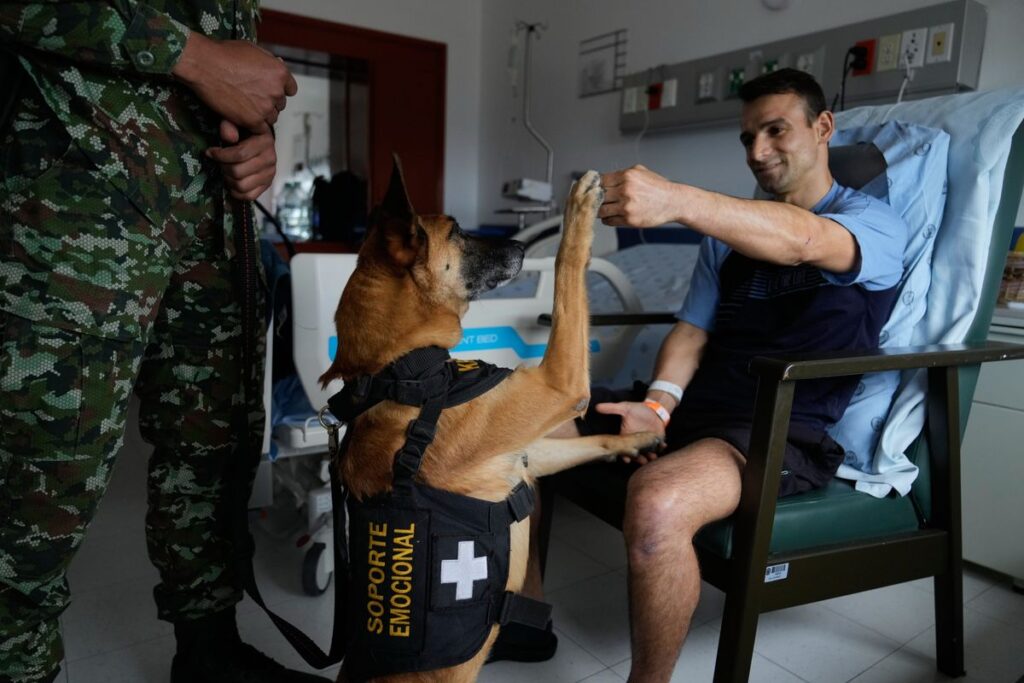**Bogotá, Colombia (AP)** — At the Central Military Hospital in Bogotá, an unusual unit patrols the hallways with a mission unlike any other battalion: lifting the spirits of soldiers wounded in combat.
Kratos, Rafa, and Lupa make up the so-called “furry force,” a group of emotional support dogs that visit service members recovering after being injured in clashes with Colombia’s illegal armed groups.
One by one, the three dogs enter the room of 2nd Sgt. Jeisson Sanchez Duque, who was shot during fighting in the northwest province of Antioquia. Kratos, the most senior of the dogs, greeted him with a paw after receiving treats. Then, Lupa settled on the floor as Sanchez brushed her, seated due to his back injury.
“It’s something different. You forget the pain and focus on the dogs,” Sanchez told The Associated Press.
Soldiers are still battling the scars from a decades-long conflict in Colombia that led to 450,000 people killed and forced 7 million to flee their homes. Despite a 2016 peace agreement between the government and the country’s largest guerrilla group, the FARC, various armed groups still operate in Colombia.
These groups, including some who broke from the FARC, dispute territories vacated by the FARC and the valuable illicit economies that run through them, including drug trafficking.
Launched in April 2024 following a visit from an animal care organization, the emotional support dog program aims to provide psychological support and ease recovery for soldiers facing both physical and emotional scars. These include amputations from landmines and injuries caused by drones dropping explosives.
According to the U.N. Office for the Coordination of Humanitarian Affairs (OCHA), incidents involving explosive devices in Colombia rose 94% between January and July compared to the same period in 2023. The hospital has also noted an increase in patients injured by explosives launched by drones.
Kratos was donated by the Air Force, Rafa by the Army, and two more dogs were provided by the hospital’s doctors. The program has since expanded to allow patients to bring their own dogs and to provide wellness breaks for hospital staff.
“The dogs show a benefit in patient recovery, supported by physiological changes that occur during interactions, which we might view as recreational, but in this case, they are therapeutic for patients,” explained Eliana Patricia Ramirez, the hospital’s deputy medical director.
The experience also reminded Sgt. Sanchez of Goma, an anti-explosives dog who saved his unit several times before being killed by a blast.
“I was so depressed in my room because I was holed up in there. My wife gave me support but it wasn’t the same,” he said. “When those dogs come in, they change you because they bring happiness.”
—
*Follow AP’s coverage of Latin America and the Caribbean at [AP News](https://apnews.com/hub/latin-america).*
https://mymotherlode.com/news/latin/10024704/colombian-soldiers-find-solace-in-furry-force-emotional-support-dogs.html

